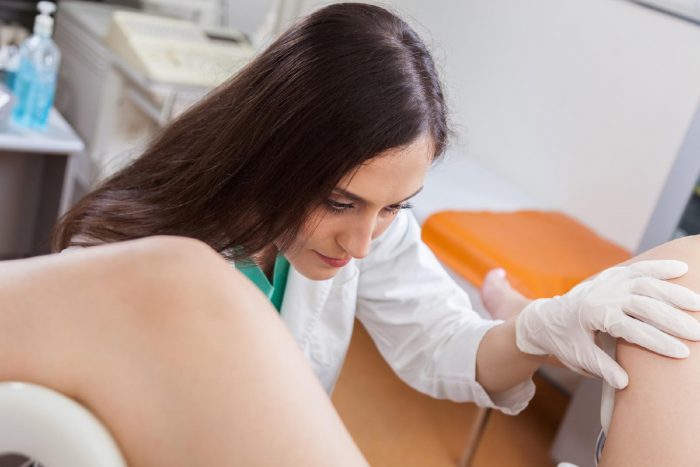
Health experts recommend that most women undergo a pap smear (pap test) annually to check for signs of cervical cancer. During a pap test, a gynecologist swabs a sample of cervical cells from the cervix. After that, the cell sample is shipped to a specialized laboratory for a close examination under a microscope. The lab specialist will check whether the cervical cells appear abnormal or normal.
About 95% to 98% of pap test results will return as normal. As for the other 5%, they will have abnormal test results. Any woman who receives abnormal pap test results will likely become nervous and scared about what this could mean for her health.
The good news is that an abnormal test result does not automatically mean cancer. Several factors could have possibly enabled such a test result. Let us review the most common factors associated with an abnormal pap test result:
1) Human Papillomavirus
The human papillomavirus (HPV) is a common sexually transmitted infection among American adults. Some high-risk HPV strains could cause a woman to develop abnormal cervical cell growth and cancer. But if a woman only has abnormal cervical cell growth due to her HPV infection, she can seek treatment from a doctor to prevent the growth from progressing into something worse, like cancer.
Many women with HPV infections never experience any symptoms to their health. However, women should undergo annual pap smears regardless of being asymptomatic. After all, you never know when precancerous or cancerous abnormalities could occur with the cervical cells. They could even happen within 1 to 2 years after the initial infection.
2) Vaginal Infections
Some types of vaginal infections can lead to abnormal pap test results because the cervix’s proximity to an infected vagina can affect it too.
According to the Indian Journal of Sexually Transmitted Diseases and AIDS, a research study from July 2020 administered a pap test to 50 patients. About 96% of their results indicated abnormal cervical cells due to sexually transmitted infections like gonorrhea, trichomoniasis, chlamydia, etc. It is important to note that yeast infections (candidiasis) also cause abnormal cervical cell changes.
Please note that all these sexually transmitted infections are treatable.
3) Inflammation
It is rare for inflammation to cause abnormal pap test results, but it is possible. For instance, if you have sexual intercourse within days of your initial pap test, then it could increase the risk of inflammation affecting the test results.
4) Menopause
A woman has lower estrogen levels when she goes through menopause. Because of this, her low estrogen from menopause can affect her cervical cell appearance. This could make the lab specialist mistake this appearance as a cell growth abnormality.
How to React to Abnormal Pap Test Results
If you have received abnormal pap test results, the first thing to do is take a breath and try to relax. Ask your gynecologist or primary care physician questions and listen to their advice on how to proceed.
Your doctor will probably want you to undergo a second pap test to detect potential HPV DNA in the cervix. If they can find HPV DNA, it would indicate an HPV infection caused your abnormal pap test results. Furthermore, the doctor can study the HPV DNA to determine the type of HPV strain. If it turns out the strain is HPV-16 and HPV-18, then you have a high risk of developing cervical cancer.
Some doctors will recommend patients undergo a colposcopy after getting abnormal pap test results. A colposcopy is where a doctor uses a colposcope (similar to a microscope) to study your cervix closely. This device allows them to see your abnormal cervical cells more closely to check their growth activity and to look for precancerous or cancerous cells.
Young females do not usually need a colposcopy as much as older female adults. It all depends on their risk of developing cervical cancer, which is higher in females 18 to 45. That is why most doctors will tell their female patients to keep getting a new pap test every six months so that they can study the current state of their cervical cells.When a doctor detects several cervical cell abnormalities after a colposcopy, the following recommendation will usually be for the woman to get a biopsy. That is where the doctor surgically removes a small sample of cervical cells or tissue and sends it to a laboratory for closer study under a microscope. The lab technician will determine if precancerous or cancerous cervical cell changes are present.
There are now HPV supplements specifically designed to include nutrients your body may become depleted of when fighting an infection. It may be beneficial to look into including these in your overall health routine.
When to Get Tested for HPV
Health experts recommend healthy women between 21 and 30 receive a pap test once every three years. Women between 30 and 65 should continue getting a pap test once every three years and an HPV test once every five years. Of course, women with abnormal pap test results will need to get tested more frequently until the abnormalities are gone.
Your doctor will clarify the recommended frequency needed for your pap testing.






